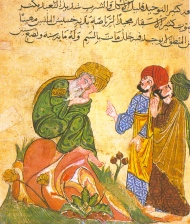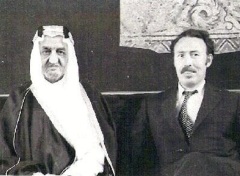Mobiliser la philosophie “arabe” pour penser les enjeux contemporains
Par Al Ghali Tazi – 11 septembre 2019
La philosophie « arabe » absente du paysage médiatique, éducatif et religieux
La philosophie « arabe » occupe une place très minoritaire pour ne pas dire anecdotique dans le paysage médiatique marocain et, plus largement, dans l’espace public. Pourtant, le Maroc a connu, au cours des deux dernières décennies, une libéralisation et un développement majeur de son paysage médiatique. Cette évolution s’est traduite par la création, notamment, de nouvelles chaînes de radio, de titres de presse et de revues spécialisées dans les sciences sociales (histoire, économie, etc.). A notre connaissance, il n’y a cependant aucune revue dédiée à la philosophie.
Dans le domaine de l’enseignement, après avoir disparu pendant plusieurs années des programmes scolaires, la philosophie a été réintroduite progressivement dans les programmes du baccalauréat. Or, les auteurs issus du monde dit arabo-musulman sont relativement très peu présents. Nous avons consulté, au hasard, deux manuels de philosophie de la première et de la deuxième année du cycle du baccalauréat et agréés par le ministère de l’éducation nationale marocain. Il est étonnant de constater que, dans les deux manuels, sur dix textes philosophiques, moins de deux ont pour auteurs des penseurs issus du monde arabo-musulman. Continue reading














